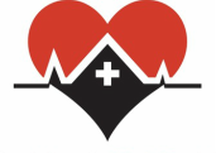What You Need To Know About the Flu!With the flu season here, it is important to really understand what the flu is and how it impacts our lives. In this blog we are going to look at a few topics including common flu symptoms, pathophysiology of the flu, and the best treatment for the flu. What Are Some common flu Symptoms?A few common flu symptoms include:
For example, cold symptoms may make it difficult for a person to get out of bed and perform everyday activities. Further, flu symptoms may force an individual’s body to completely shut down. Most people who experience the flu will recover in a few days to less than two weeks, but some people will develop complications (such as pneumonia) as a result of flu, some of which can be life-threatening and result in death. What Is The Flu?The flu is a contagious respiratory disease caused by a virus that attacks the upper and lower portions of the respiratory tract. People are most frequently affected by the flu in winter and spring. During these seasons, the flu virus may be more prone than ever before to spread from person to person via respiratory secretions. For instance, a person who handles items contaminated by someone who is currently dealing with the flu virus may be exposed to flu germs. In this scenario, a flu virus infection may occur. The flu virus affects men, women and children. However, the Mayo Clinic (2021) indicated that the following populations are most at risk: young children under age 5, and especially those under 6 months; adults older than age 65, residents of nursing homes and other long-term care facilities, and pregnant women and women up to two weeks after giving birth. What is the best treatment for the flu?Fighting the flu can be a difficult task. If someone believes that they have contracted the flu virus, over-the-counter (OTC) drugs may help quickly alleviate various flu symptoms. For example, oral or nasal decongestants often help flu sufferers reduce swelling in the nasal passages. On the contrary, people who are experiencing flu-related sneezing or nasal discharge can be administered an antihistamine to help remedy their symptoms.
When used as treatment, the use of antiviral drugs can lessen symptoms and shorten the time you are sick by 1 or 2 days. They also can prevent serious flu complications, like pneumonia. For people at higher risk of serious flu complications, treatment with antiviral drugs can mean the difference between milder or more serious illness possibly resulting in a hospital stay. For those who desire to find the best and most effective treatment, it may be beneficial to consult with your family physician. Expert consult allows an individual to receive an introspective examination of his or her flu symptoms. Subsequently, the CDC recommends immediate treatment for people who have flu or suspected flu and who are at higher risk of serious flu complications.
Comments
|
AuthorDr. Tracy A. Jones is the CEO of Help-A-Heart CPR, LLC and an American Heart Association, ASHI, and American Red Cross Master Program Trainer, Instructor, & AHA Faculty Member located in San Antonio, Texas. Archives
June 2024
Categories |
Help-A-Heart CPR, LLC | 1747 Citadell Plaza Suite 101 | San Antonio, Texas 78209 | (210) 380-5344 | [email protected]
Copyright © Help-A-Heart CPR, LLC 2024
100% Certification Acceptance
We promise your employer, school, or agency will accept the certification card we issue to you. If there is a question of acceptance or validity, simply send us an email at [email protected] with full details. We will reach out to the individual/entity and provide accreditation information. If still there’s a question, we will provide you with a full refund of your class fee. It’s that simple.
We promise your employer, school, or agency will accept the certification card we issue to you. If there is a question of acceptance or validity, simply send us an email at [email protected] with full details. We will reach out to the individual/entity and provide accreditation information. If still there’s a question, we will provide you with a full refund of your class fee. It’s that simple.
|
Communities Served
ALABAMA: Birmingham
ARKANSAS: Fayetteville, Hot Springs, Jonesboro, Little Rock NEW MEXICO: Albuquerque TENNESSEE: Knoxville TEXAS: Amarillo, Arlington, Austin, Bandera, Bastrop, Boerne, Brownsville, Comfort, Converse, Corpus Christi, Dallas/Ft. Worth, Del Rio, Dripping Springs, El Paso, Floresville, Fredericksburg, Georgetown, Harlingen, Houston, Junction, Katy, Kerrville, Kingsville, Kingwood, Laredo, Lubbock, Lufkin, McAllen, Midland, New Braunfels, Odessa, Pleasanton, Round Rock, San Angelo, San Marcos, Schertz, Seguin, Taylor, Temple, Texarkana, Tyler, Universal City, Victoria, Waco, The Woodlands |
Why Choose Help-A-Heart CPR?
1. Flexible Scheduling
2. On and Off Location Training Available 3. Casual, Fun Atmosphere 4. Best Price Guarantee 5. All Instructors are AHA and/or ARC certified 6. 5 Star Google Reviews 7. Blended Learning (Online & Skills Check) Available 8. Meets OSHA & College CPR Requirements 9. Get Certified Within 3-4 Hours 10.Certification Is Good For Two Years 11. Official AHA/ARC/ASHI Training Site 12. High Quality Safety Training! |








